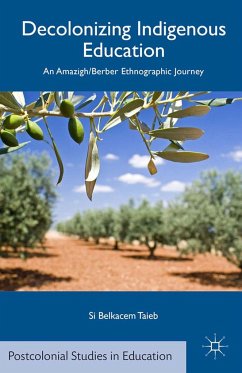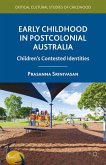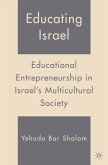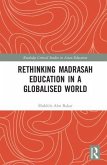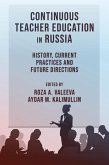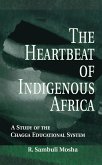Using auto-ethnography, Taieb narrates the journey of developing a educational philosophy from and for the Kayble of Algeria and undertakes to write the sociological foundations of an Kayble education system.
Hinweis: Dieser Artikel kann nur an eine deutsche Lieferadresse ausgeliefert werden.
Hinweis: Dieser Artikel kann nur an eine deutsche Lieferadresse ausgeliefert werden.
"How do indigenous peoples raise their children within their distinctive cultures given the tensions experienced daily in an increasing climate of globalization? Taieb's response to this profoundly important question sits at the heart of indigenous cultures throughout the world. By drawing on an autoethnographic approach focusing on the Amazigh/Berber of Algeria, he is able to produce insights that penetrate the complexities of the strength and vulnerabilities of cultural recognition and recovery and the role that education can play in restoring hope and giving courage." - Wally Penetito, Professor of Maori Education, Victoria University of Wellington, New Zealand
"The need for indigenous scholarship by indigenous scholars is immense. Taieb's thought-provoking Amazigh/Berber autoethnography is a powerful reclaiming of culture, language, and identity. His poignant narrative episodes and reflexivity offer insightful glimpses of Kabyle life and landscapes and understanding of Berber culture. His resilience and voice challenge mainstream research and schooling. This inspiring, innovative text, a major contribution to indigenous, decolonizing pedagogies and methodologies, calls for critical, relational, voice-centered methodologies in human inquiry." - Mary H. Maguire, Professor of Integrated Studies in Education, McGill University, Canada
"Taieb's study of the Berber/Kabyle culture of his ancestors breaks new ground in its exploration of indigenous knowledge. This is a celebration of an ancient and fascinating people whose traditions have survived several colonial regimes. Remarkably, the culture continues to be both vibrant and creative in the face of continuing repression. Taieb's work provokes new questions and offers startling insights into indigenous experience on a global level. This extraordinary work, courageous in conception and rich in detail, uses an innovative approach to research. Working from deep within his personal, family, and community knowledge, as well as a variety of scholarly perspectives, Taieb succeeds in bringing into focus the environmental, emotional, spiritual, artistic, and political dimensions of the people of the Atlas mountains." - Ann Beer, former Associate Professor, McGill University, Canada
"The need for indigenous scholarship by indigenous scholars is immense. Taieb's thought-provoking Amazigh/Berber autoethnography is a powerful reclaiming of culture, language, and identity. His poignant narrative episodes and reflexivity offer insightful glimpses of Kabyle life and landscapes and understanding of Berber culture. His resilience and voice challenge mainstream research and schooling. This inspiring, innovative text, a major contribution to indigenous, decolonizing pedagogies and methodologies, calls for critical, relational, voice-centered methodologies in human inquiry." - Mary H. Maguire, Professor of Integrated Studies in Education, McGill University, Canada
"Taieb's study of the Berber/Kabyle culture of his ancestors breaks new ground in its exploration of indigenous knowledge. This is a celebration of an ancient and fascinating people whose traditions have survived several colonial regimes. Remarkably, the culture continues to be both vibrant and creative in the face of continuing repression. Taieb's work provokes new questions and offers startling insights into indigenous experience on a global level. This extraordinary work, courageous in conception and rich in detail, uses an innovative approach to research. Working from deep within his personal, family, and community knowledge, as well as a variety of scholarly perspectives, Taieb succeeds in bringing into focus the environmental, emotional, spiritual, artistic, and political dimensions of the people of the Atlas mountains." - Ann Beer, former Associate Professor, McGill University, Canada

